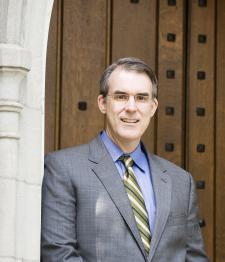Founded in 1908, Reed College is a liberal arts college in Portland, Oregon, known for its rich intellectual life. Dean of Admission Keith Todd joins us this month to answer not five -- but eight questions -- in the generous spirit of inquiry that exemplifies Reed College.
Located on 116 acres in a residential neighborhood, the Reed campus is just five miles from downtown Portland, and about 90 minutes from the Pacific coast. Featuring a lake and Reed Canyon, a wooded wetland with abundant wildlife and native plants, the campus is home to 1400 students.
The quirky intellectualism Reed is known for is on full display even on their website, which reads like a series of droll literary vignettes -- with comic overtones. (Not to go too Reedie on you.) In fact, Reed has produced 31 Rhodes Scholars, as well as numerous winners of the Fulbright, Watson, and National Science Foundation fellowships. Classes average 15 students with a 10-to-1 student-faculty ratio. Reed offers 22 department-based majors (from Anthropology to Theater), 12 interdisciplinary majors (including History-literature or Mathematics-economics) and 6 dual degree programs (such as applied physics and electronic science). And students can also work with their adviser to design alternate interdisciplinary majors.








